Coming to America: How torture ended up being used in a Chicago black site
When you don't enforce the law, future lawbreaking is inevitable

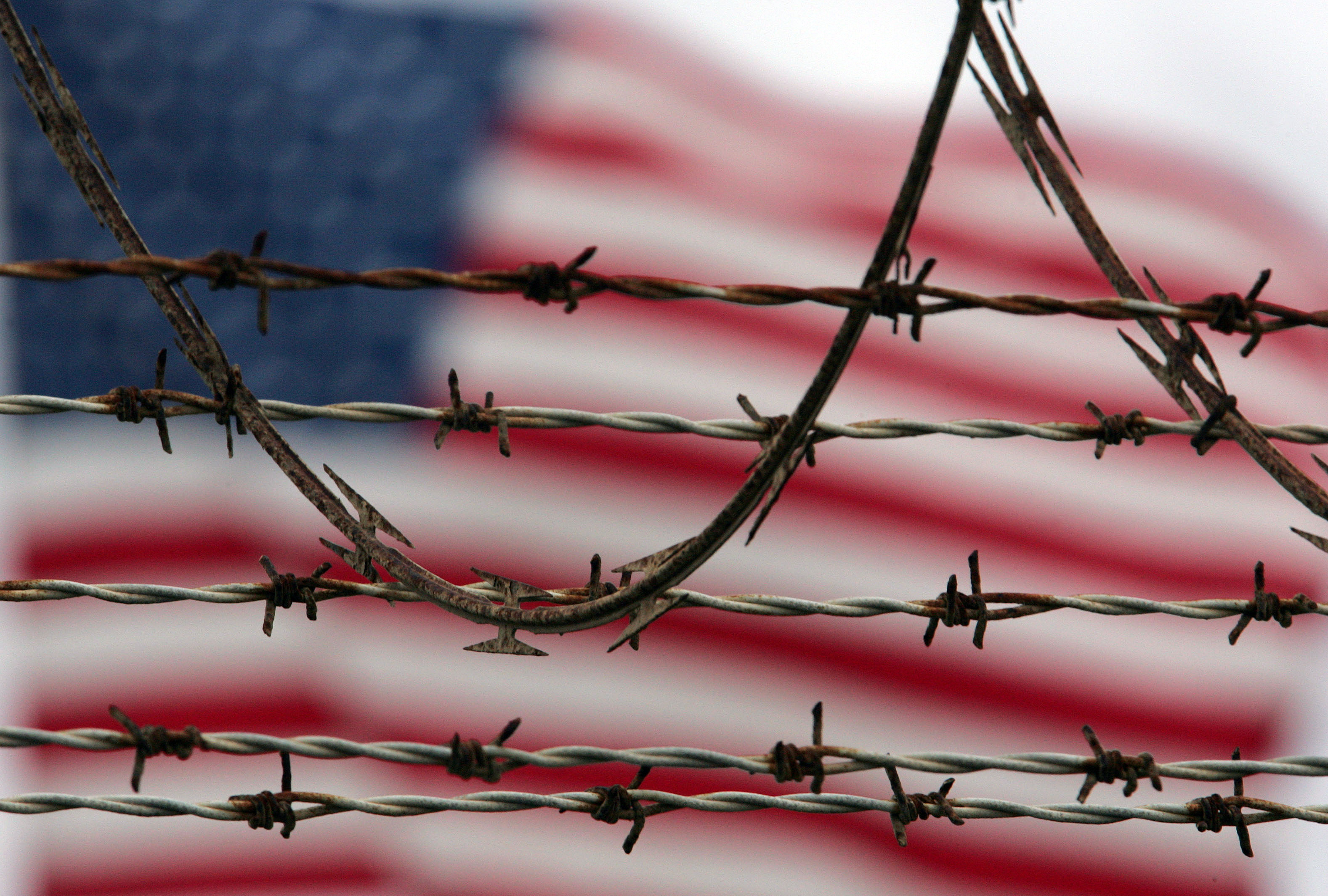
A free daily email with the biggest news stories of the day – and the best features from TheWeek.com
You are now subscribed
Your newsletter sign-up was successful
In 1929, President Herbert Hoover named a commission to study crime, headed by George Wickersham. The ensuing report mainly focused its attention on alcohol prohibition, which was fueling a massive growth in organized crime. But the commission also found much wanting in American police departments. One section of the report, on police malpractice, became a landmark in the history of American policing.
In those days, torture was common in American police departments, commonly referred to as giving suspects the "third degree." The Wickersham report detailed how brutal interrogations were not just a violation of constitutional rights, but part of general incompetence that let many criminals escape punishment.
It led to a massive overhaul of policing across the nation, as the scholar Darius Rejali documented in his book Torture and Democracy. Following a series of Supreme Court cases, some of which cited the Wickersham report, courts began tossing out convictions obtained through torture. Reforms were implemented that gradually expunged torture from most American policing.
The Week
Escape your echo chamber. Get the facts behind the news, plus analysis from multiple perspectives.

Sign up for The Week's Free Newsletters
From our morning news briefing to a weekly Good News Newsletter, get the best of The Week delivered directly to your inbox.
From our morning news briefing to a weekly Good News Newsletter, get the best of The Week delivered directly to your inbox.
That work is right now being undone. American police are re-embracing torture in just the way that experts like Rejali said we would. Torture has a long history in American police departments, and if vigilance is not maintained, it will crop up again and again. The Obama administration's cowardly unwillingness to pursue any accountability at all for CIA torturers during the Bush era has all but ensured that fact.
Though most routine police torture was gone by the 1950s or so, there were some important exceptions. In Chicago, for example, torture has likely never been fully expelled from the police department. The infamous torturer Jon Burge, recently released from prison, was part of a systematic torture ring in the city's Area 2. Fired from the police force in 1993, he was later convicted and sentenced to four years in prison for perjury.
More recently, Guardian reporter Spencer Ackerman published a series of amazing stories about another Chicago detective named Richard Zuley, who allegedly tortured people before Sept. 11, leading to several false convictions. Later, Zuley was part of the torture team at Guantanamo Bay.
However, Burge himself probably learned his torture techniques during his time in the Vietnam War. As Rejali argues, Burge's preferred method, electroshock torture using a magneto, was common during that war, when it was done with the magneto from a hand-cranked field telephone.
A free daily email with the biggest news stories of the day – and the best features from TheWeek.com
The point isn't quite that overseas torture has come back to haunt us. Rather it shows how the borders between all the various domestic and overseas security services are highly permeable. Torture techniques are passed in both directions, and can persist for decades even in the face of determined efforts to stamp them out.
Torture will always be a temptation among the most reactionary police and spooks, like the ones who unironically cite the Col. Jessup speech justifying murder from A Few Good Men. They portray themselves as the macho tough guys willing to do the dirty work to fight crime, in spite of any sissy liberal laws. That is, in fact, the position of virtually the whole Republican Party.
So if there aren't very strong norms and institutions in place to investigate and halt torture, and if the laws against it aren't even enforced, then wannabe fascists in police departments everywhere will choose the rubber hose over the microscope and the notebook.
That brings me to another Ackerman scoop from last week. He revealed that Chicago police have been running an off-the-books interrogation center at Homan Square, where detainees could be tortured without being booked or processed. It strongly smacks of the infamous CIA black sites that once proliferated around the globe, but the torture is classically American. At The Intercept, one former detainee described what it was like when he was held there in 2006:
"When we first got in there it was room-temperature, and before he [a Chicago police officer] left, he was like, 'It’s gon’ get a little hot in here,'" says Hutcherson, now 29. For six hours, a sweaty Wright sat zip-tied to a bench with no access to a restroom, a telephone, or water. "They strapped me — like across, kind of — to a bench, and my hands were strapped on both sides of me," he says. "I can’t even scratch my face."[…] "They were badgering me with questions. 'Tell me about this murder!'" one officer shouted. Wright provided his interrogator with false information and names, with the hope of making it stop. He told me he was "trying to get out of the situation and give them something they wanted." [The Intercept]
A hot, stifling room, endless questioning, and sleep deprivation are a set of techniques Rejali calls "sweating." Before the Wickersham report, it was the most common form of American torture. It very well may be again.
Ryan Cooper is a national correspondent at TheWeek.com. His work has appeared in the Washington Monthly, The New Republic, and the Washington Post.
-
 The Epstein files: glimpses of a deeply disturbing world
The Epstein files: glimpses of a deeply disturbing worldIn the Spotlight Trove of released documents paint a picture of depravity and privilege in which men hold the cards, and women are powerless or peripheral
-
 Jeff Bezos: cutting the legs off The Washington Post
Jeff Bezos: cutting the legs off The Washington PostIn the Spotlight A stalwart of American journalism is a shadow of itself after swingeing cuts by its billionaire owner
-
 5 blacked out cartoons about the Epstein file redactions
5 blacked out cartoons about the Epstein file redactionsCartoons Artists take on hidden identities, a censored presidential seal, and more
-
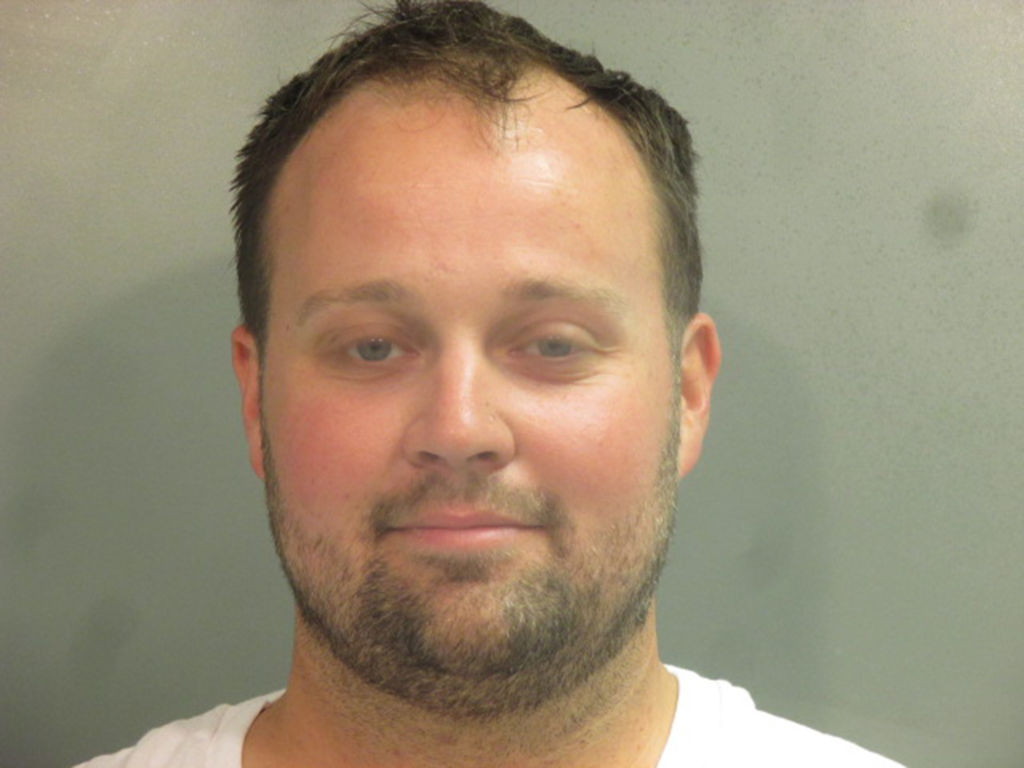 19 Kids and Counting's Josh Duggar hit with child pornography charges
19 Kids and Counting's Josh Duggar hit with child pornography chargesSpeed Read
-
 Matt Gaetz was the main opponent of Florida's nonconsensual 'revenge porn' law, GOP lawmaker says
Matt Gaetz was the main opponent of Florida's nonconsensual 'revenge porn' law, GOP lawmaker saysSpeed Read
-
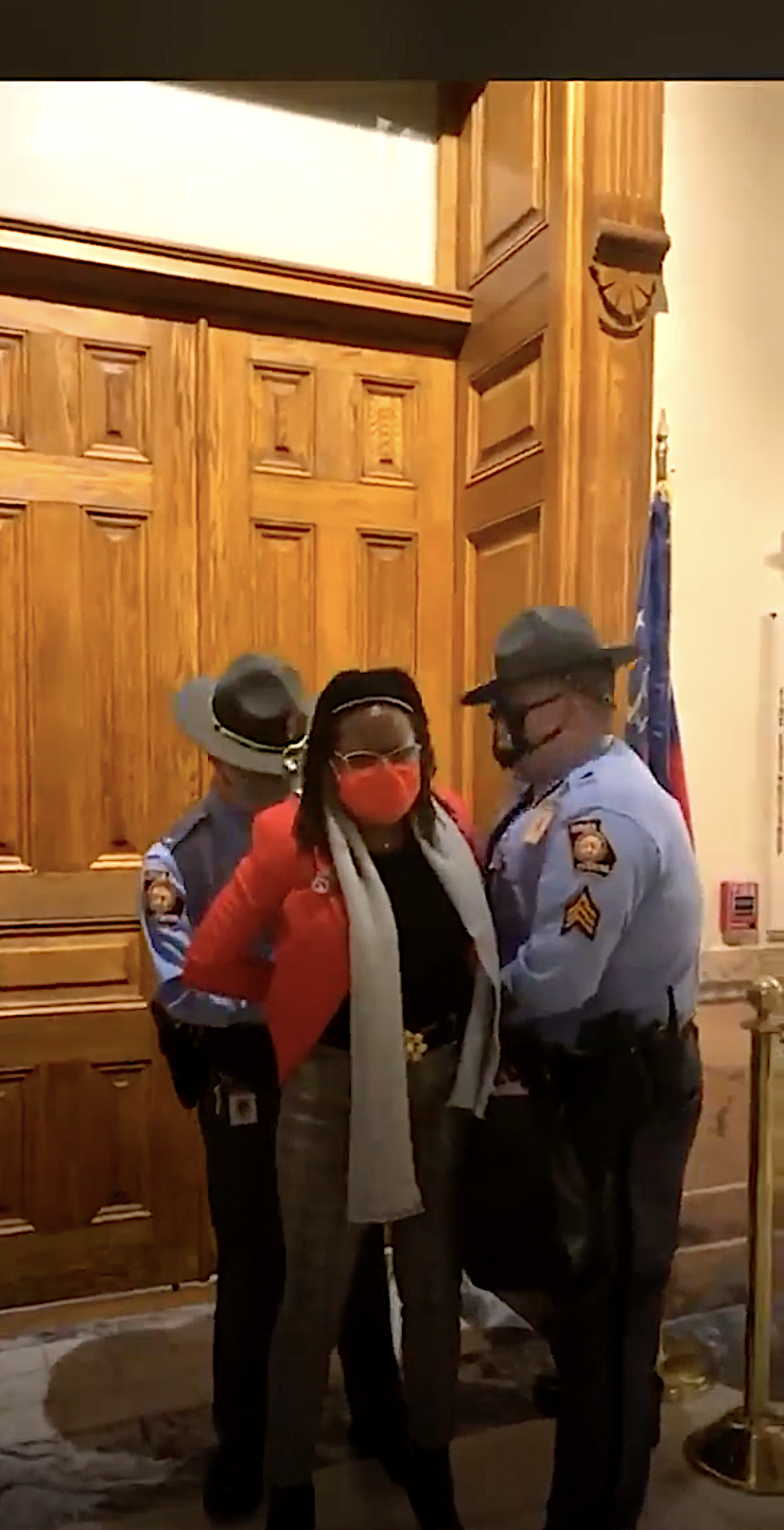 Georgia police arrest Black lawmaker for knocking as Gov. Brian Kemp signed new voting restrictions
Georgia police arrest Black lawmaker for knocking as Gov. Brian Kemp signed new voting restrictionsSpeed Read
-
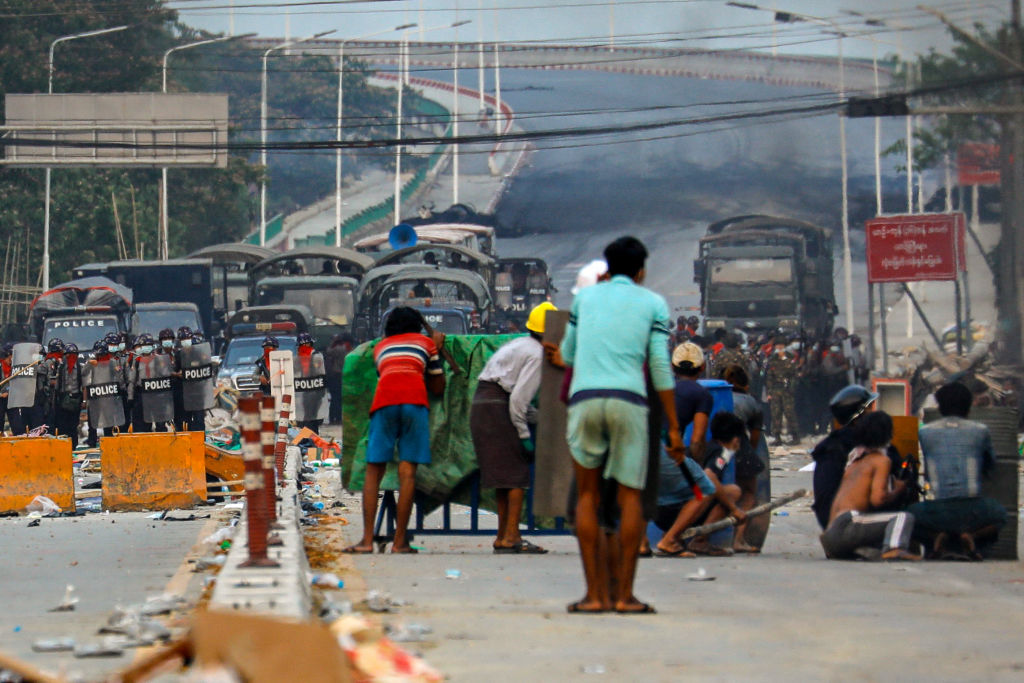 Myanmar junta reportedly kills 38 protesters, declares martial law in part of Yangon
Myanmar junta reportedly kills 38 protesters, declares martial law in part of YangonSpeed Read
-
 Raskin asks FBI for answers on how it's targeting white supremacists in law enforcement
Raskin asks FBI for answers on how it's targeting white supremacists in law enforcementSpeed Read
-
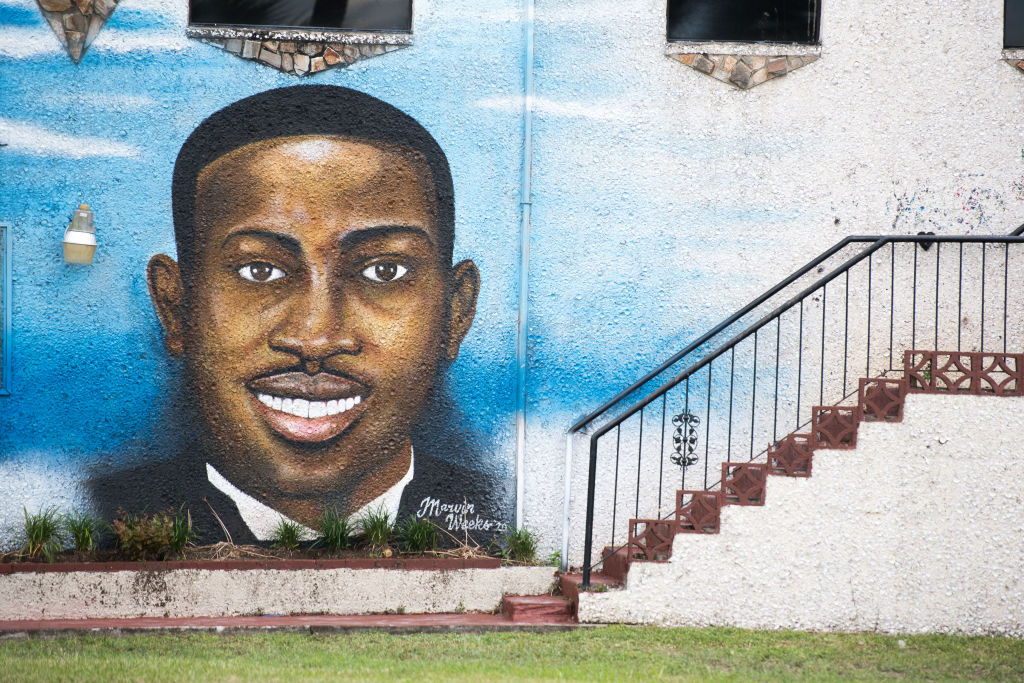 Ahmaud Arbery's mother files civil rights lawsuit 1 year after his death
Ahmaud Arbery's mother files civil rights lawsuit 1 year after his deathSpeed Read
-
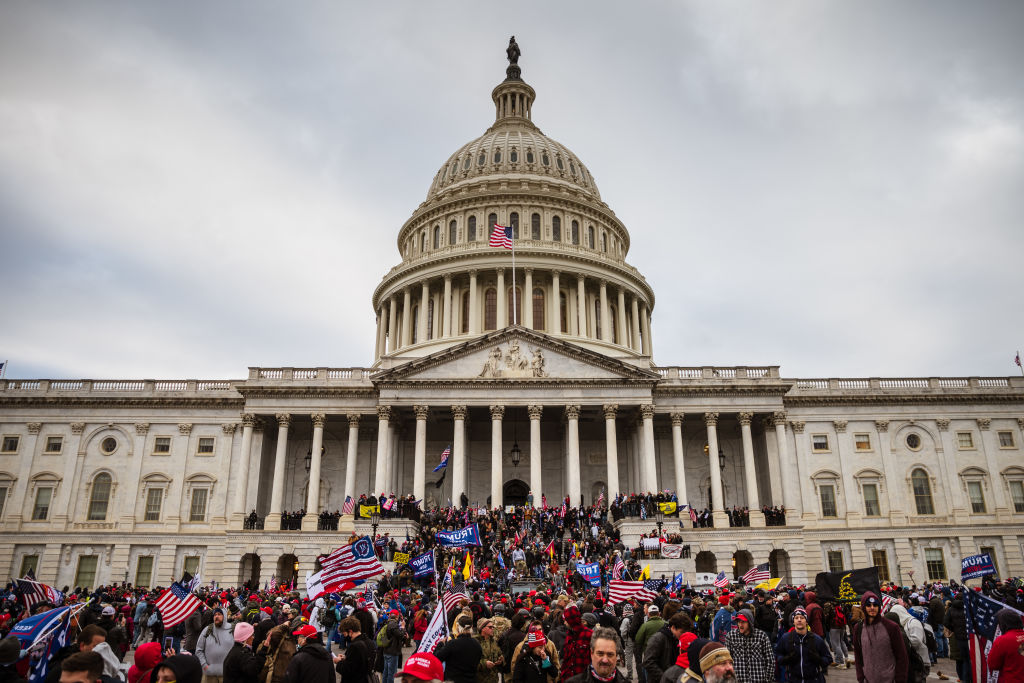 Lawyer for man charged in Capitol riot says he worked for the FBI, had top-secret security clearance
Lawyer for man charged in Capitol riot says he worked for the FBI, had top-secret security clearanceSpeed Read
-
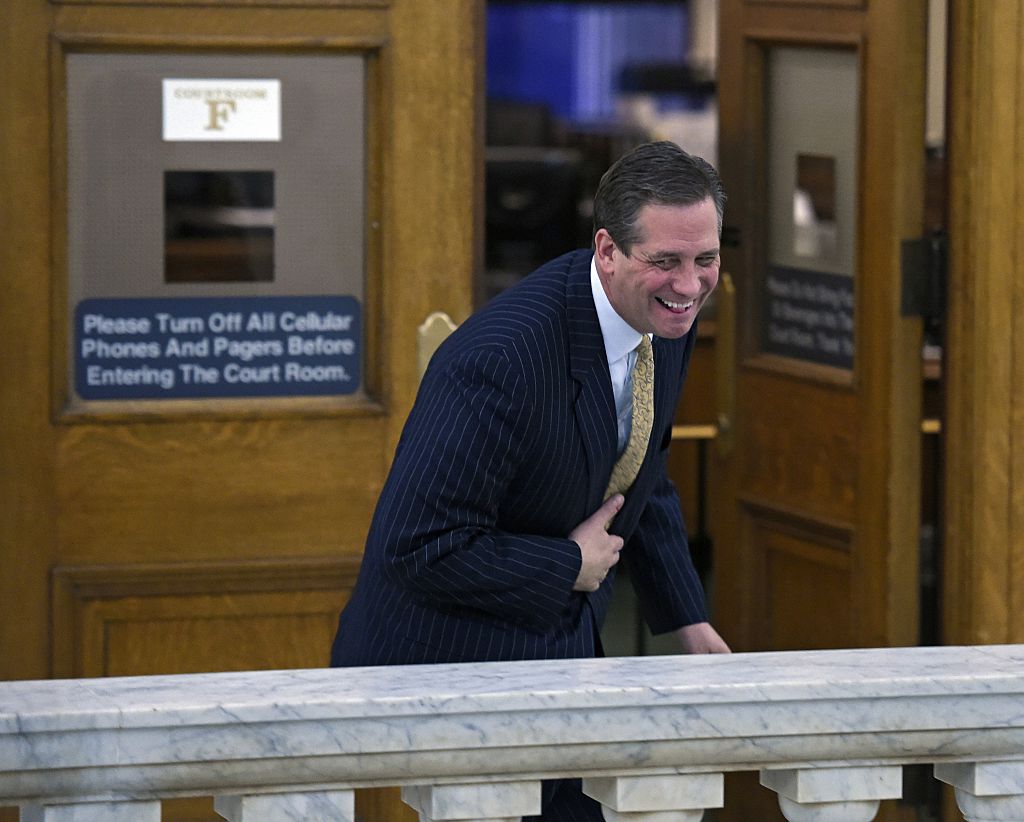 Trump's impeachment lawyer specializes in medical malpractice and 'people falsely accused in Me Too cases'
Trump's impeachment lawyer specializes in medical malpractice and 'people falsely accused in Me Too cases'Speed Read
